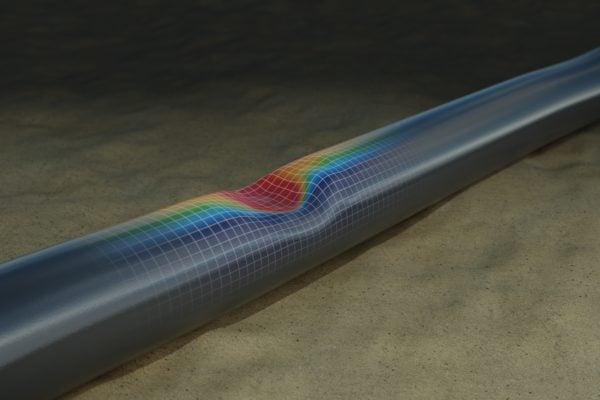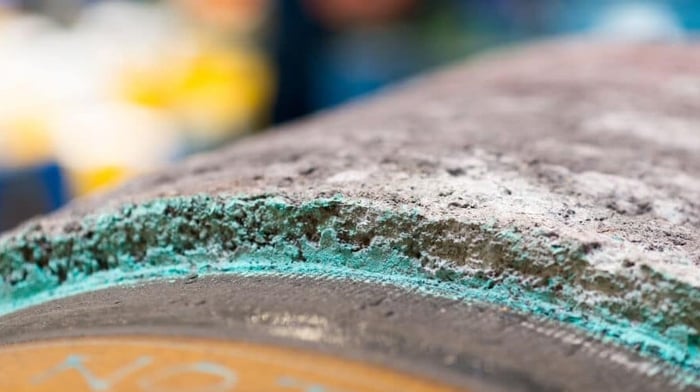
About the Course
The Integrity Management of Subsea Pipelines course provides vital knowledge for oil and gas professionals, focusing on maintaining the integrity of subsea pipeline systems. It covers key themes including pipeline integrity management systems (PIMS), which are essential for ensuring safety and operational efficiency. Participants will learn about best practices in pipeline design and construction, including material selection, corrosion prevention, and protective coatings.
A significant portion of the course is dedicated to advanced techniques for detecting and mitigating threats to pipeline integrity. This includes identifying physical damage and corrosion, utilising cutting-edge inspection technologies. Attendees will gain practical skills in developing and implementing risk-based inspection plans, which help prioritise maintenance activities based on risk assessments.
The course also incorporates practical case studies. Through these case studies, participants can better understand the complexities and solutions associated with maintaining subsea pipelines.
Another important aspect covered is the management of aging pipelines. The course provides strategies for extending the operational life of pipelines through effective monitoring, regular maintenance, and innovative repair techniques. This is crucial for ensuring long-term reliability and safety.
By the end of the course, attendees will be equipped with the skills and knowledge necessary to ensure the reliability and safety of subsea pipelines, enhancing operational efficiency and protecting the marine environment.
Who's it for
The Integrity Management of Subsea Pipelines course is tailored for professionals who are directly involved in or responsible for the maintenance, safety, and management of subsea pipeline systems. This includes:
-
Pipeline Engineers who need to understand and apply integrity management practices to ensure pipeline safety and compliance.
-
Operations personnel responsible for overseeing the upkeep and operational efficiency of subsea pipelines.
-
Quality Assurance and Control Specialists focused on ensuring that pipeline integrity standards are met.
-
Environmental Compliance Officers who need to understand the environmental implications of pipeline integrity issues.
This course is designed to enhance the professional development of individuals committed to safeguarding the functionality and safety of subsea pipeline infrastructure.
Learning Objectives
Upon completing this course, delegates will be able to:
-
Develop a solid understanding of the fundamentals and advanced concepts in pipeline integrity management.
-
Implement effective integrity management programmes that enhance the safety and efficiency of pipeline operations.
-
Utilise advanced inspection and maintenance techniques to identify and address potential pipeline integrity issues.
-
Formulate risk-based inspection strategies that prioritise pipeline maintenance efforts and resource allocation.
-
Apply case study examples to understand and solve real-world problems in subsea pipeline integrity management.
These objectives aim to prepare delegates for the complex challenges in maintaining subsea pipeline integrity, ensuring they can contribute effectively to their organisations and the industry.
Course Content
-
Day One
Understanding PIMS
-
Introduction to Pipeline Integrity Management Systems
-
Key Processes and Best Practices
Stability Analysis
-
Investigating Pipeline Instabilities
-
Evaluating Data Sources and Analysis Techniques
-
Exploring Stabilisation Methods
Thermal Buckling
-
Identifying and Assessing Thermal Buckling in Pipelines
-
Mitigation Strategies and Remedial Actions
Addressing Spans
-
Detection and Assessment of Pipeline Spans
-
Stress Analysis and Vibration Mitigation
-
-
Day Two
Flow Assurance Fundamentals
-
Understanding Flow Dynamics and Regimes
-
Troubleshooting Flow Restrictions and Implementing Controls
Comprehensive Corrosion Management
-
Types and Models of Corrosion Processes
-
Effective Monitoring and Control Measures
Optimising Pigging Operations
-
Pigging Mechanics: Types and Suitability
-
Ensuring Piggability and Efficient Operations
Internal Inspection Techniques
-
Advanced Pigging Technologies
-
Non-pigging Inspection Methods and their Applications
-
-
Day Three
External Inspection Protocols
-
Key External Inspection Techniques and Focus Areas
-
Inspecting Risers, Flexibles, and Pig Traps
Risk-Based Inspection Strategies
-
Developing and Implementing a Risk-Based Inspection Plan
-
Understanding and Applying Risk Assessment Models
Detailed Defect Assessment
-
Classifying Defect Types and Assessing Impact
-
Applying Codes and Standards for Defect Management
-
-
Day Four
Dent Assessment and Management
-
Analysing Dent Characteristics and Causes
-
Assessment Methods and Protection Strategies
Pipeline Isolation and Safety
-
Isolation Techniques: From High Friction Pigs to Pipe Freezing
-
Ensuring Safety in Isolation Operations
Offshore Repairs
-
Techniques for Effective Offshore Pipeline Repairs
-
Understanding Hyperbaric Welding and Other Methods
Extending Pipeline Life
-
Addressing Ageing Assets and Design Life Considerations
-
Strategies for Pipeline Life Extension
-
Learning Outcomes
By the end of the programme you will:
-
Understand the importance of a robust pipeline integrity management system.
-
Learn appropriate measures for maintaining pipeline integrity.
-
Identify typical integrity threats and associated risks to offshore pipeline systems.
-
Select the most appropriate inspection technique for threat detection.
-
Understand commonly used integrity assessments and associated repair options.
-
Choose the best integrity assessment approach for various scenarios.
-
Master the approach for life extension of subsea pipelines.
-
Class Materials
- Case studies that explore real-world subsea engineering challenges and their solutions.
- A comprehensive course manual detailing all essential topics and technical data.
- Detailed notes from the tutor, Phil Goby, offering additional insights and expertise.
- A collection of references and practical worked examples to deepen understanding and application of the material.
-
Jeenius
Participants in the Integrity Management of Subsea Pipelines course gain access to Jeenius, a cutting-edge learning platform that offers comprehensive support tools. This platform includes all course notes, recordings of the sessions for later review, and the opportunity for one-on-one support with the tutor. Additionally, Jeenius provides access to the latest insights in subsea engineering, enhancing the learning experience with up-to-date industry knowledge.
-
In-Company Delivery
For in-company delivery options and content customisation to meet your specific needs, please don't hesitate to reach out to us.
-
Fee
£2,995 per person.
Book one of our virtual classes below:
Your Tutor

Phil Goby
BEng (Hons), CEng, MIMechE
LEAD TUTOR
As the tutor for our Integrity Management of Subsea Pipelines course, Phil leverages his extensive practical knowledge to provide students with a real-world perspective on subsea pipeline engineering challenges. He adeptly bridges the gap between theoretical concepts and their practical applications, ensuring that students gain a thorough and practical understanding of the subject matter.
Testimonials
"If you are still looking for methods of taking care of your assets, please wander no more; Jee has the everlasting solution for you."
"As someone with minimal experience in this field the course provided a good foundation of knowledge that will give me the confidence to be involved in pipeline integrity issues in the future.”
Similar Courses


Who should attend?
This programme serves industry professionals by offering updated information and skills crucial for navigating the evolving energy sector, and future energy professionals by providing a unique perspective and competitive edge for a successful career in this field.
